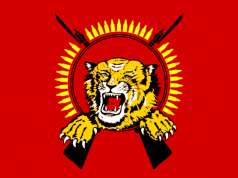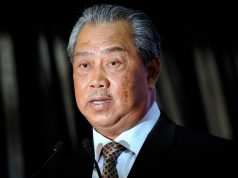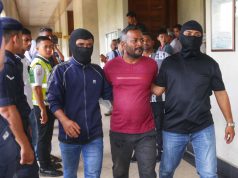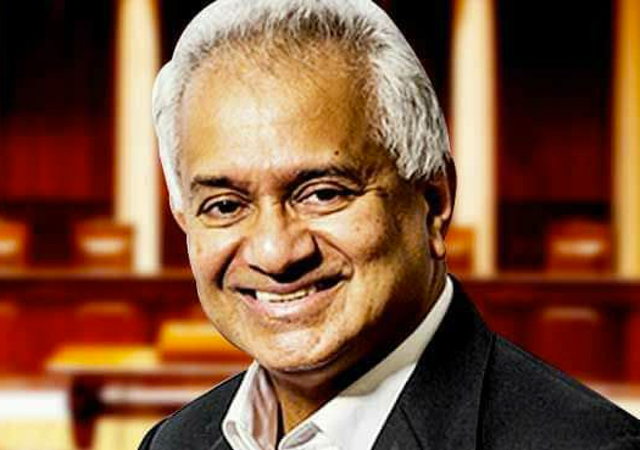

In his 11-page media statement, Thomas ruled that there was no realistic prospect of conviction for any of the 12 men on any of the 34 charges brought against them.
“Accordingly, in the exercise of my discretion pursuant to Article 145(3) of the Federal Constitution, I have decided to discontinue proceedings against them with immediate effect,” he said.
Explaining his decision, Thomas said the common theme of all the 12 was that each of them had in his mobile phone or Facebook account photos of LTTE leaders such as Velupillai Prabhakaran and other leaders of LTTE slain during the Civil War in Sri Lanka.
He said if such conduct could constitute a criminal offence, it would bring the law into disrepute.
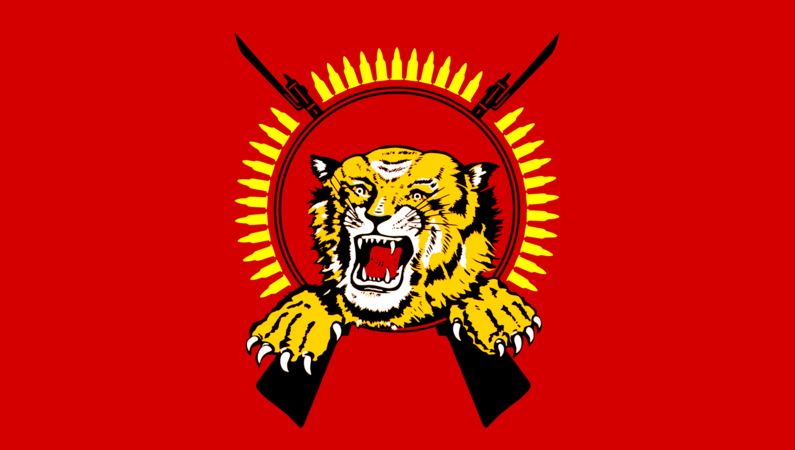

The 12 accused are DAP member, V. Suresh Kumar, 44, businessman, B.Subramaniam, 58, storekeeper, S. Thanagaraj, 27, Gadek assemblyman, G. Saminathan, 35, Seremban Jaya assemblyman P. Gunasekaren, 61, Chief Executive Officer of Green Technology Corporation in Melaka, S. Chandru, 39, technician, S. Arivainthan, 28, security guard, M. Pumugan, 30, secondary school teacher in Telok Panglima Garang, Selangor, Sundram Renggan @ Rengasamy, 53, taxi driver V. Balamurugan, 38, scrap metal collector A. Kalaimughilan, 29, and despatch rider S.Teeran, 39.
All of them were detained under the Security Offences (Special Measures) Act 2012 (SOSMA) at Sungai Buloh prison pending their trials in the coming months. Under SOSMA they were denied bail.
They were charged in October 2019 last year.
Thomas said LTTE was declared a terrorist group by the Minister of Home Affairs by an Order gazetted on Nov 12 2014.
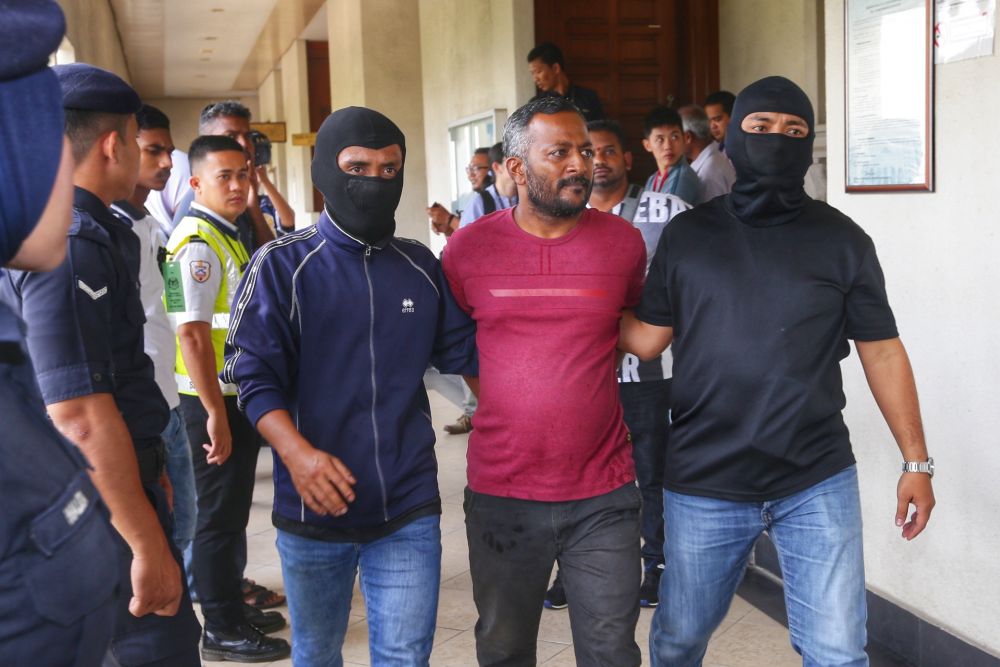

The AG said it was obvious that these charges against him simply could not stand because at that point of time LTTE was not even gazetted, which is a necessary element of the offences.
“Additionally an argument is available to the defence of each accused that the declaration of LTTE as a terrorist group on 12 November 2014 may be invalid or at least ought to have been revoked following a Section 66B(9) review of the Order,” he said.
Thomas clarified that a “terrorist act” was defined in Section 130B(2) of the Penal Code to mean an act or threat of action in Malaysia or elsewhere which meets one or more criteria in Section 130B(3) and which expressly did not fall within the exclusion provided in Section 130B(4).
He said the criteria listed in Section 130B(3) made it clear that terrorist acts or threats of action were contemplated to be grave and serious in nature.
“Examples include acts that cause death(s) and the use of firearms and explosives. The exclusion provided in Section 130B(4), on the other hand, makes it clear that acts of advocacy, protest, dissent or industrial action which are not intended to cause death, serious injury or risk to public safety are not terrorist acts or threats of action. Simply put, peaceful acts are not terrorist acts. The exclusion provided by Section 130B(4) reflects Parliament’s recognition of fundamental constitutional rights, including the right to free speech and expression and the right to freedom of association and assembly.
The dividing line between acts which are considered terrorist acts and acts which are not is the gravity of the act: if it causes or intends to cause the death of another, it is a terrorist act. However, if it is merely a statement or protest, whether on social media or otherwise, without threatening violence, it is not a terrorist act,” he said.
In arriving at his decision not to continue the proceedings against the 12 accused, Thomas said it was commonplace to have idols to whom hero-worship is displayed.
The AG said it was not just pop stars, sportsmen or actors who were admired: historical personalities and politicians were often the subject of adoration.
He said, thus, millions of people across the globe admired Lenin, Stalin, Mao Tse Tung or Che Guevara, and the like and having their photos and other representations in one’s mobile phone or on a Facebook account did not transform one to being a terrorist.
“Just because each of these leaders used terror or violence to achieve their political goals does not mean that an ardent supporter online should be regarded as a terrorist or is planning a terrorist act,” he said.
He explained that in July 2017, the LTTE was removed from the terrorism blacklist of the European Union by the European Court of Justice for the second time.
Thomas said the court found no evidence to establish that LTTE carried out attacks after its military defeat in 2009.
“The LTTE was neither suspected nor linked to the most recent bomb attacks in Sri Lanka during Easter of 2019. LTTE has never in its history carried out violent attacks in Malaysia,” he said.
Thomas said as Public Prosecutor, he must conduct himself in a manner which would maintain, promote and defend the interest of justice.
He said it was incumbent upon a prosecutor that the law was properly applied and to seek a fair balance between conflicting public interests.
“The intensity of preparation for a trial makes it different from the investigation by the police or other investigating agency.
Prosecutors must take into account facts that only become known as the case develops after charges are laid. The sufficiency of the evidence to establish the “beyond reasonable doubt” criminal standard is always a particular challenge.
I must be satisfied that there is sufficient evidence to provide a realistic prospect of conviction against each suspect on each charge. In reaching that judgment, I must exercise discretion responsibly and impartially,” he said.
Thomas said six of the accused were charged for offences that allegedly took place between March and December 2014, but prosecutors did not see it fit to charge them soon after the alleged offences had been committed.
“It is against the public interest that these six persons are tried in 2020 for offences allegedly committed six years previously. The passage of time is unacceptable for a case of this nature.
He further said the charges against the other six accused were related to offences allegedly committed in January and October 2019.
However, Thomas said by this time, even if LTTE was still gazetted under the law as a terrorist group, the defence would contend that LTTE had not been responsible for violence even in its home country, Sri Lanka in 2019, let alone having any impact on the ordinary affairs of ordinary people in Malaysia.
“The link is remote, specious and tenuous. Harm to Malaysians cannot be established by the prosecution.
Section 95 of the Penal Code deals with acts causing slight harm. It provides “Nothing is an offence by reason that it causes, or that it is intended to cause, or that it is known to be likely to cause, any harm if that harm is so slight that no person of ordinary sense and temper would complain of such harm.”
Section 95 emphasizes “harm”, thus, a victimless offence or one which “harms” no one should be treated with caution by the prosecution,” he said.
He said the 34 charges framed against the accused initially was on SOSMA because they were arrested and detained pursuant to the procedures laid out in SOSMA.
However, as their trials are approaching, the prosecution had to turn to the Penal Code which contained the provisions under which the offences forming the basis of the charges were found.
He said there were five categories of offences framed against them, namely six charges for “giving support” to LTTE in an event, 13 charges for “giving support” to LTTE using social media, 13 charges for “possession” of items associated with LTTE, one charge for “distribution” of items associated with LTTE and charge for “display” of an item associated with LTTE.
— BERNAMA




